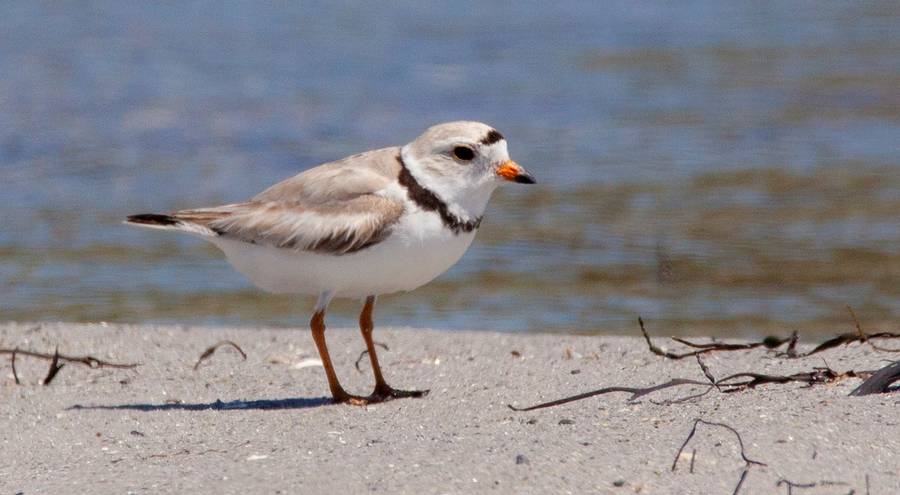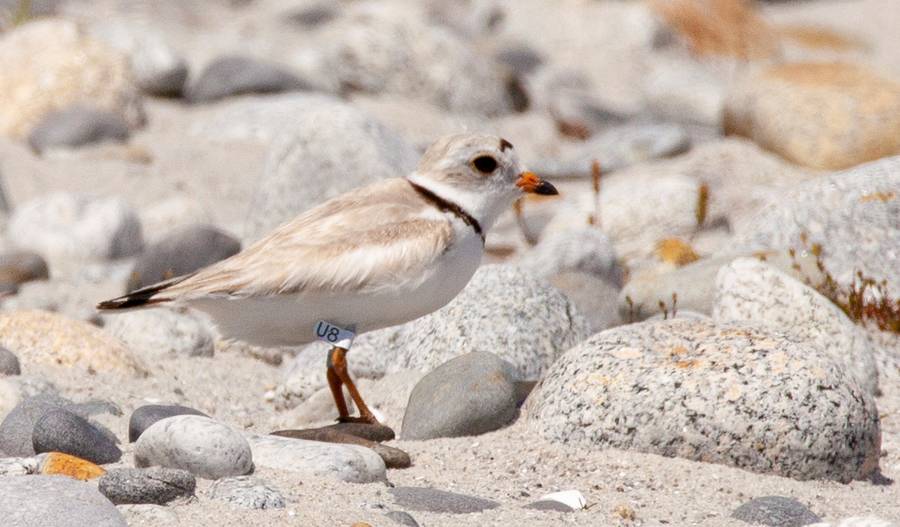
2021-06-09
Protecting Piping Plovers
by KEVIN MCBAINLocal Journalism Initiative Reporter
Part of the St. Catherine's River Beach area at Kejimkujik Seaside Adjunct property is once again closed off for the summer months to allow the endangered Piping Plover some tranquility during its nesting period.
Parks Canada began monitoring the Piping Plover's nesting areas in 2008, carrying on the work that the Canadian Wildlife Service began in 1975.
"The Piping Plover is such a vulnerable species and part of Park Canada's job is to protect their habitat and the species itself, especially during nesting season," said Jennifer Eaton, volunteer coordinator for Kejimkujik National Park and National Historic Site.
On average over the past few years there have been four sets of birds making their nests on the beach. A nest typically contains four eggs.
One of the reasons the birds are so vulnerable is that their nests, often called scrapes, are literally just a half-inch or so scrape in the sand. They're normally found on the upper part of a beach where there is some cobble they can use to camouflage their nests.
"They're unbelievable with camouflage. The plovers are about seven inches long and they are this beautiful sandy sort of colour that camouflages perfectly with the sand," explained Eaton.
"If they're not moving, and you haven't kept an eye on them, they are very difficult to see. Also, when they are on the nest they are trying to stay still, so it would be very easy to stumble across them."
A person could also walk right on a nest and be unaware of it. The small eggs resemble little rocks, making protection of nesting areas that much more crucial.
Eaton stressed the importance of leaving the birds undisturbed and viewing them from afar; anyone taking a dog for a walk on a beach where there are plovers should keep the pets on a leash.
Time spent away from the nest is stressful for the adult birds. It uses up their energy and the eggs are are left unprotected and cooling. Egg incubation typically lasts between 26 and 28 days.
During the nesting period, the male and female take turns sitting on the eggs and both rear their young together. The female will desert the family within a few days, however, leaving the male to carry on looking after the young birds which are able to fly within 21 to 35 days of hatching.
"It's really neat when they're switching off to take turns on the eggs. They try to minimize the time they are off the eggs," said Eaton. "One will slide in under the other. It's really cute."
The portion of the beach that closed May 1 will remain so until early August when the birds are ready to head out on their own. Parks Canada employees perform weekly monitoring of the birds and their nesting successes.
To help monitor the Piping Plovers, the Canada Parks staff is looking to expand the bank of volunteers.
"We have a great volunteer program at Keji. It's really extensive," said Eaton. "We have a lot of people that volunteer with our fishing program, Blanding's turtle program and our loon watch. We are now looking to build our Piping Plover volunteer program."
To volunteer for this program, or any others offered at Kejimkujik, go to parkscanada.gc.ca/keji-volunteer.
Even with a portion of the beach closed off, Eaton noted there is still plenty of room on the beach to enjoy.
"It is a totally gorgeous beach. It is featured on your Nova Scotia Health card," she said. "And there is a large stretch of beach you can still walk on and get your toes in the water."








